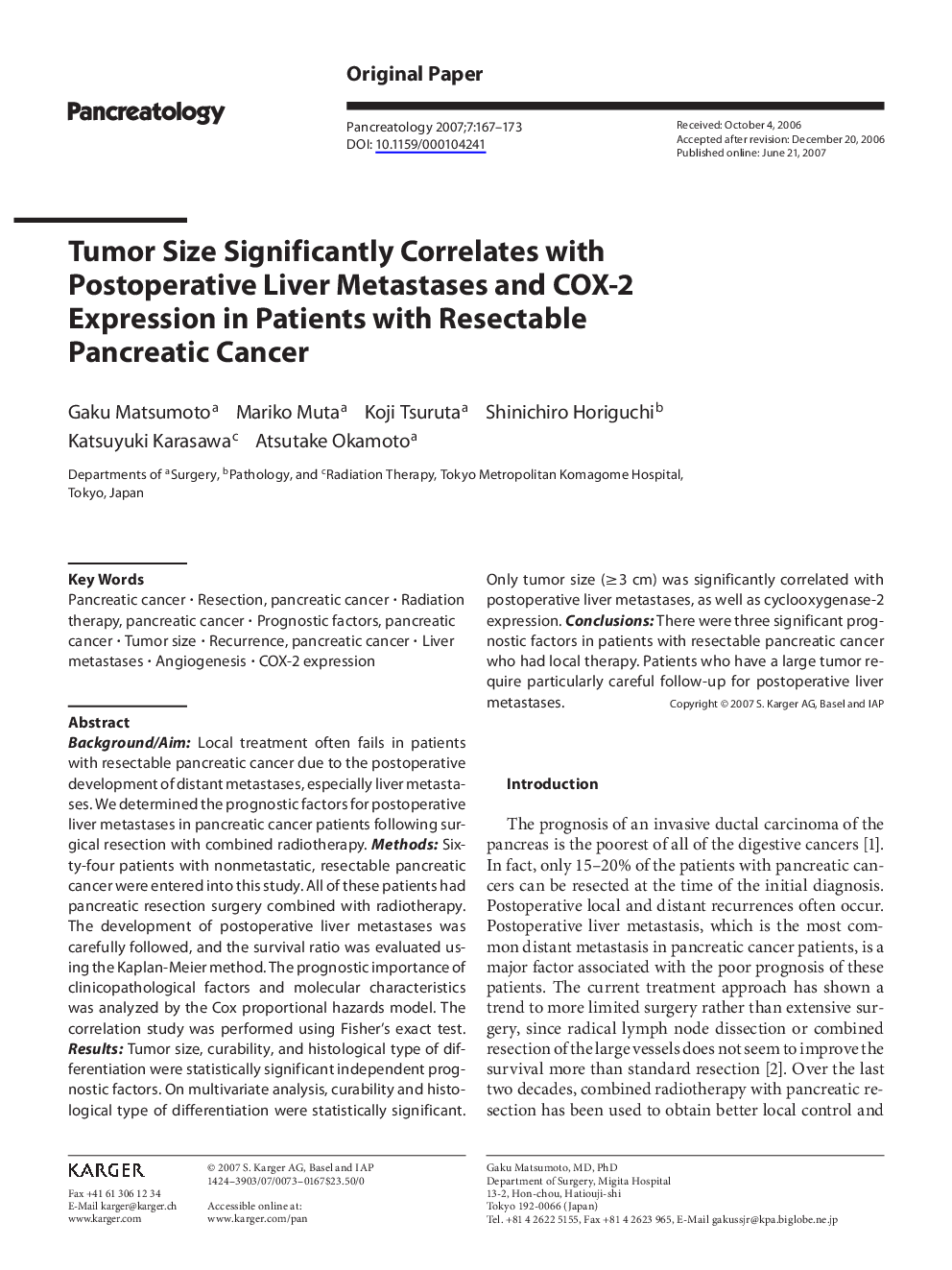| Article ID | Journal | Published Year | Pages | File Type |
|---|---|---|---|---|
| 3318508 | Pancreatology | 2007 | 7 Pages |
Abstract
Background/Aim: Local treatment often fails in patients with resectable pancreatic cancer due to the postoperative development of distant metastases, especially liver metastases. We determined the prognostic factors for postoperative liver metastases in pancreatic cancer patients following surgical resection with combined radiotherapy. Methods: Sixty-four patients with nonmetastatic, resectable pancreatic cancer were entered into this study. All of these patients had pancreatic resection surgery combined with radiotherapy. The development of postoperative liver metastases was carefully followed, and the survival ratio was evaluated using the Kaplan-Meier method. The prognostic importance of clinicopathological factors and molecular characteristics was analyzed by the Cox proportional hazards model. The correlation study was performed using Fisher's exact test. Results: Tumor size, curability, and histological type of differentiation were statistically significant independent prognostic factors. On multivariate analysis, curability and histological type of differentiation were statistically significant. Only tumor size (>3 cm) was significantly correlated with postoperative liver metastases, as well as cyclooxygenase-2 expression. Conclusions: There were three significant prognostic factors in patients with resectable pancreatic cancer who had local therapy. Patients who have a large tumor require particularly careful follow-up for postoperative liver metastases.
Related Topics
Health Sciences
Medicine and Dentistry
Gastroenterology
Authors
Gaku Matsumoto, Mariko Muta, KojiTsuruta KojiTsuruta, Shinichiro Horiguchi, Katsuyuki Karasawa, Atsutake Okamoto,
